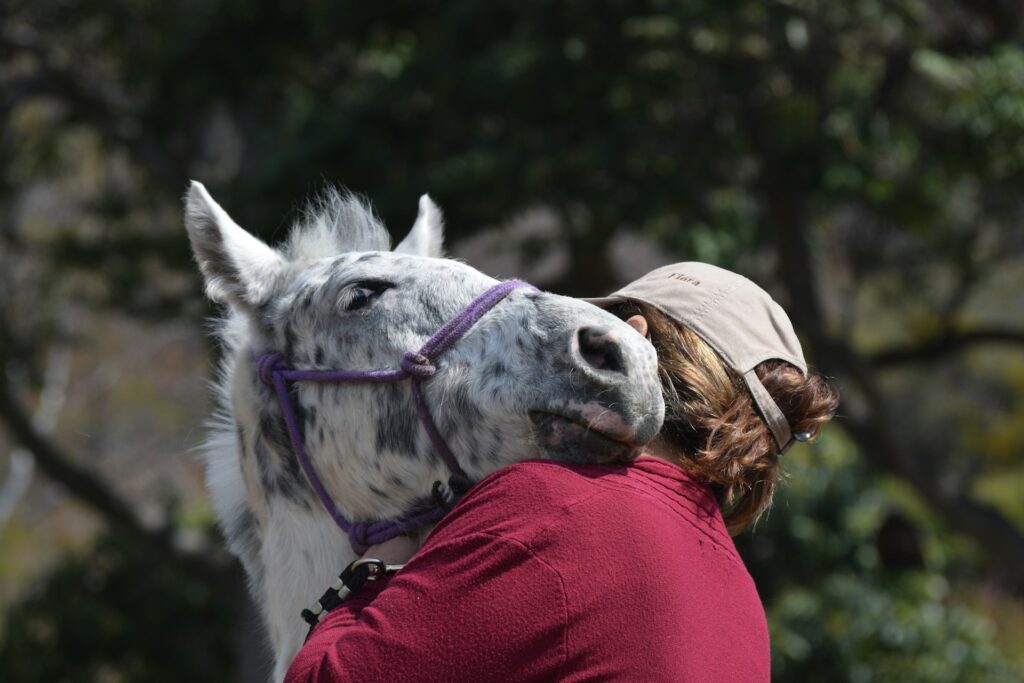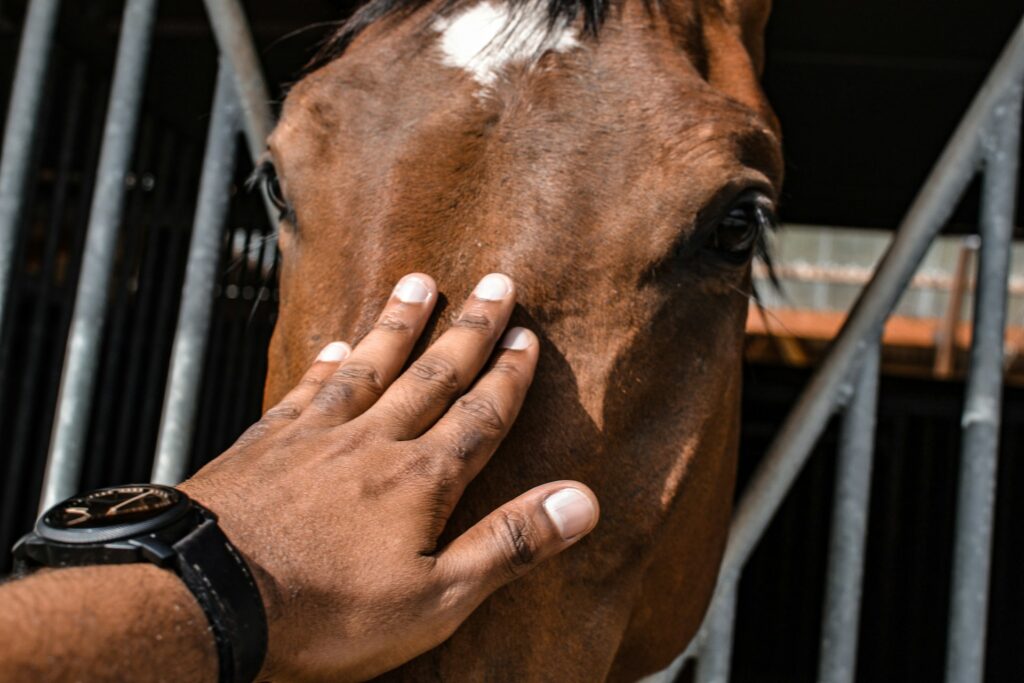The Role of Equine Therapy in Dual Diagnosis Treatment

Equine therapy offers a unique way to support healing for people facing both addiction and mental health challenges. Horses respond to human emotions in ways that feel honest and grounding, which makes them powerful partners in recovery. Clients who take part in equine therapy in dual diagnosis treatment often find it easier to connect with themselves and others. Many families searching for support discover that treatment options extend beyond traditional talk therapy and that programs can be strengthened with experiential care. That is why many choose to begin at detox centers in San Fernando Valley, where equine therapy is offered as part of a comprehensive plan. The experience helps create hope and balance for both addicts and their loved ones.
How Does Equine Therapy Improve Emotional Regulation And Self-Awareness?
Clients in recovery often struggle to manage intense emotions. Horses mirror human feelings, reflecting anxiety, anger, or fear without judgment. This allows people to see their emotional states more clearly and make healthier choices. The presence of a horse encourages grounding and recognition of what is happening in the moment. Equine therapy for addiction treatment gives clients a safe space to slow down and adjust their responses. Over time, the skill of noticing emotions before acting on them builds stronger coping strategies. Isn’t that the foundation for lasting recovery?

Can Horses Help Build Trust And Healthy Relationships?
Trust is often one of the most damaged areas in the life of someone with co-occurring disorders. Horses require respect, patience, and consistency to respond well. Clients learn that aggression or dishonesty does not work, but calm direction and care build a bond. This lesson carries over to human relationships, showing clients how to establish healthier connections. In our relapse prevention program California, equine therapy becomes a practice field where clients test new relational skills without fear of failure. Families often notice improvements in communication and boundaries when loved ones engage in this process. Isn’t it easier to believe in change when trust starts to rebuild?
Why Is Stress Reduction And Mindfulness So Important In Recovery?
Stress is one of the greatest triggers for relapse. Horses naturally draw people into the present moment. Simple acts like grooming or leading them help calm racing thoughts and ease tension. Clients feel grounded as they focus on touch, breathing, and movement. These moments of calm allow the nervous system to reset. At our dual diagnosis treatment center Los Angeles, equine therapy complements counseling by offering a nonverbal way to practice mindfulness. Stress management then becomes more than theory—it becomes a lived skill. Wouldn’t learning to calm the mind during pressure moments make relapse less likely?
How Do Horses Teach Confidence, Responsibility, And Routine?
Recovery thrives when confidence grows and routines are rebuilt. Caring for a horse means showing up, feeding, cleaning, and handling responsibilities that cannot be ignored. Clients feel pride when they see the results of their effort and consistency. This sense of accomplishment slowly transfers into other parts of life. A person who once avoided responsibility now feels capable of maintaining structure. That shift strengthens sobriety and mental health together. Isn’t a routine grounded in purpose one of the most powerful tools against chaos?

How Does Equine Therapy Fit Into Broader Treatment Goals?
No single method creates recovery. Equine therapy in dual diagnosis treatment works best alongside medical care, counseling, and peer support. It provides an experiential bridge between theory and practice. Clients talk about coping skills in therapy and then practice them in the stable. They explore responsibility, self-awareness, and connection with the horse, then apply those lessons in family or group sessions. The treatment team can integrate equine feedback into the overall progress. This holistic design gives clients multiple ways to grow. Isn’t recovery more sustainable when every part of care connects together?
How Equine Therapy Works at Tranquility Recovery Center
At our Sun Valley facility in Los Angeles, equine therapy is guided by trained professionals who ensure both safety and growth. Clients work with horses in a calm outdoor setting that promotes healing, reflection, and connection. Each session is tailored to meet individual needs while supporting the broader goals of recovery. Therefore, take the first step toward healing in a supportive, compassionate environment. Contact us today to learn how equine therapy can become part of your recovery journey.
Emotional Awareness and Healing
Horses mirror human emotions, allowing clients to recognize and process feelings that might otherwise stay buried. This helps individuals gain insight into triggers and patterns that fuel addiction or mental health struggles.
Building Trust and Confidence
Interacting with horses requires patience and respect. Over time, clients learn how to establish trust, which naturally strengthens their confidence and ability to form healthier relationships.
Stress Reduction and Mindfulness
The serene environment of our Sun Valley center, combined with the calming presence of horses, makes each session a practice in mindfulness. Clients learn how to stay present and manage stress more effectively.

Integration With Recovery Programs
Equine therapy does not stand alone—it is part of a comprehensive treatment plan that may also include detox, counseling, and dual diagnosis support. Together, these approaches create a strong foundation for lasting recovery.
Why Is Equine Therapy in Dual Diagnosis Treatment Worth Considering?
Equine therapy in dual diagnosis treatment shows that healing does not only happen in a therapist’s office. Horses help clients regulate emotions, build trust, manage stress, develop responsibility, and integrate skills into daily life. Families searching for options often feel relief when they see how this therapy adds depth to recovery. Programs that blend medical treatment, counseling, and equine therapy provide stronger foundations for long-term stability. If you are seeking support, consider how equine therapy might fit into your plan. The path often begins at professional centers that provide safety and structure, then expands into holistic approaches that make change last. Isn’t it time to see recovery as something both practical and inspiring?
You Have Questions
We Have Answers
At Tranquility Recovery Center, we offer treatment for a wide range of addictions, including alcohol, opioids, prescription drugs, and illicit substances. Our team tailors each program to meet individual needs, focusing on both the physical and emotional aspects of recovery.
At Tranquility Recovery Center, we offer treatment for a wide range of addictions, including alcohol, opioids, prescription drugs, and illicit substances. Our team tailors each program to meet individual needs, focusing on both the physical and emotional aspects of recovery.
At Tranquility Recovery Center, we offer treatment for a wide range of addictions, including alcohol, opioids, prescription drugs, and illicit substances. Our team tailors each program to meet individual needs, focusing on both the physical and emotional aspects of recovery.